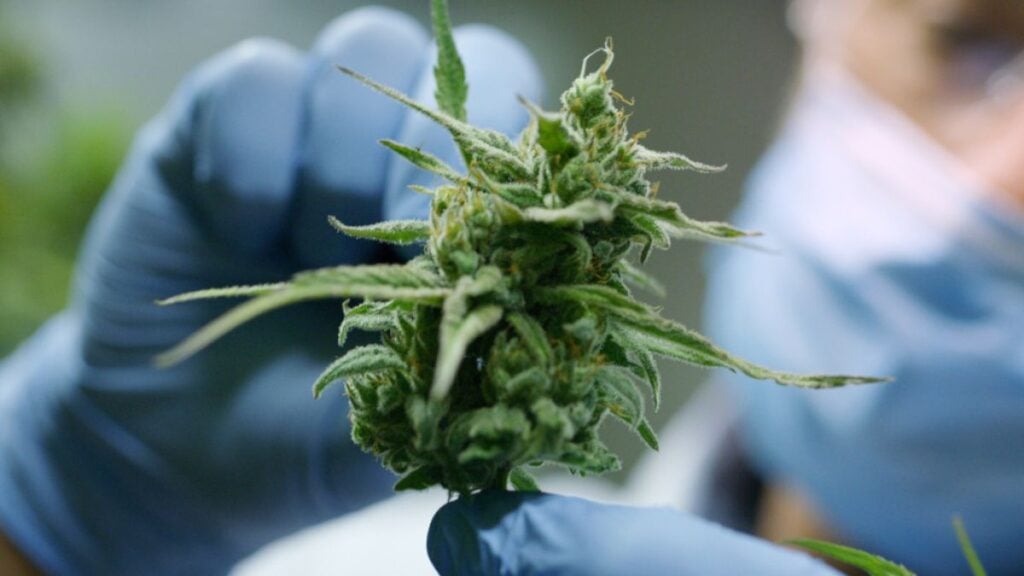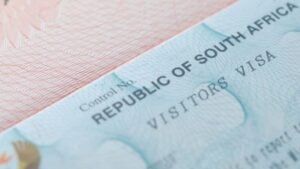New laws for cannabis in South Africa are coming

The regulations required for the Cannabis for Private Purposes Act to be implemented will be finalised by March 2026.
This is according to Minister of Justice and Constitutional Development, Mmamoloko Kubayi, responding to a recent Parliamentary Q&A from DA MP Tobias Chance.
The Cannabis Act, as it is also known, was assented to by President Cyril Ramaphosa in May 2024 and regulates the consumption, possession, and cultivation of cannabis by adults in South Africa.
Kubayi said that the Act can only be implemented once her department has received feedback from concerned departments.
These include the Department of Health, Agriculture, Trade, Industry and Competition, Social Development, Small Business and Development, the Presidency, and the South African Police.
She expects this to be finalised within the current financial year, ending on 31 March 2026.
The question posed to Kubayi primarily concerned the collaboration of her department to fulfil its commitment to the Hemp and Cannabis Phakisa Action Lab forum from 2023.
The forum involved participants from several sectors, including legal experts, scientists, business, Rastafari, and labour stakeholders, to secure much-needed policy coherence.
Resolutions from the forum included fast-tracking the removal of cannabis from the Drugs Act and reviewing the Medicines Act to further enable cannabis growth for non-medical uses.
As for the enforcement of the law, it was decided that it was necessary to reinforce instruction given to South African Police Service members to respect the privacy rights of cannabis cultivators and users.
Kubayi explained that collaboration with the Department of Trade, Industry, and Competition (DTIC) involves covering clauses like the removal of cannabis and its variants from the Drugs and Drug Trafficking Act.
Her department also needs to reinclude the reference to permits, licenses, and certifications in the Cannabis Act in terms of other legislation.
However, DTIC Minister Parks Tau told Chance that he was waiting for the removal of cannabis from the Drugs and Drug Trafficking Act by Kubayi’s department.
Despite this, Kubayi says the Cannabis Act provisions the substance’s removal from the Drugs Act.
“The Cannabis for Private Purposes Act fulfils the Phakisa Action Lab commitments to the extent that it contains section 1(2) and deletes cannabis and its variants from the Drugs Act,” Kubayi said.
Section 1(2) notes that the dealing, possession, and cultivation of cannabis identified as offences, “are expressly authorised in this Act or in terms of a permit or licence issued under any other national legislation.”
Government dragging its feet

It has been over two years since the Phakisa Action Lab and more than 12 months since the Cannabis Act was signed into law, and the country is still waiting for a finalised regulatory framework.
This has left the medical cannabis and industrial hemp sectors highly restrictive and bureaucratic, while the responsible adult-use market is largely undefined.
Many entrepreneurs are also left in a grey area as there is no clear legal framework to guide cultivation, trade, or taxation, says AKOS Bio medical cannabis pharmacy group COO Connor Davis.
To make matters worse, South Africa’s National Department of Health administered a blanket ban on cannabis and hemp products in foodstuffs in March this year, which it was forced to quickly withdraw.
The ban applied to the import, manufacture, and sale of any foods containing cannabis and cannabis products, including Sativa, Indica, Ruderalis, hemp seed oil, or powder derivatives.
At the time, Davis said that while the need for safety regulation for the industry is understandable, the government’s ban went a step too far.
He pointed out that because the regulations were vague and did not distinguish between hemp and cannabis, it unilaterally criminalised previously lawful foodstuffs.
Of particular concern was the impact on the estimated 1,800 businesses operating within the law that would have been criminalised due to the change.
The Department of Health retracted the ban two weeks after Ramaphosa instructed it to do so, calling for further consultations.
However, the department has been clear that further regulations would be coming, once public comment and consultation processes were complete.




















